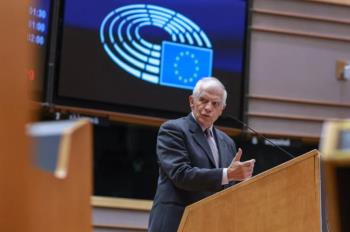Alwaght- Chinese state media has fiercely rebuked the US for fueling trade war, calling Trump and his administration as “selfish”, “rude” and “mundane” in its unpredictability.
"The unpredictability of [the] Trump administration has become mundane, or even boring for China,” an editorial in the state-run tabloid Global Times said on Sunday.
"It reinforces the difference in images of the two countries: one challenges the foundation of global trade through sudden attacks; and one that is prepared to defend itself in a trade war that it cannot avoid".
In an escalating spat over the United States’ trade deficit with most of its major trading partners, including China, US President Donald Trump said last week he was pushing ahead with hefty tariffs on $50 billion of Chinese imports, starting on July 6.
An editorial in the People’s Daily on Saturday said the latest trade provocations allowed China “to see more clearly the face of the Trump administration, one that is rude, unreasonable, selfish and headstrong”. China’s official Xinhua news agency added: “The wise man builds bridges, the fool builds walls. With economic globalisation there are no secluded and isolated islands".
China’s proposed tariffs on more than 500 categories of US goods, a list more extensive than the one it released in April, appear aimed at hurting Trump’s Republican base before the US midterm elections in November. The list includes beef, poultry, pork, dairy products, seafood, tobacco and soybeans. China is the largest buyer of US soybeans. Beijing said it would also target $16bn of US products like coal, crude oil, natural gas, and medical equipment at a later date.
Beijing has threatened to levy duties on US oil imports worth almost $1 billion per month, as war trade between Beijing and Washington is expanding, Reuters reported on Monday.
The situation could still escalate. US trade representative Robert Lighthizer has said the White House will release a plan by the end of the month on restricting Chinese investment in the US and limiting Chinese purchases of advanced technology from the country.
Trump has said he would triple the value of Chinese imports subjected to tariffs to $150bn.
Other levers Beijing has already begun to employ include extra inspections on current US imports into China.
"The economic damage of the tariffs announced so far won’t be too big in the scheme of things. But that could quickly change,” said Roland Rajah, the director of the international economy programme at the Lowy Institute in Sydney.
Chinese state media still left room for the possibility of negotiations. “Given the frequent flip-flopping of the Donald Trump administration, it is still too early to conclude that a trade war will start,” said an English-language editorial in the China Daily.



























